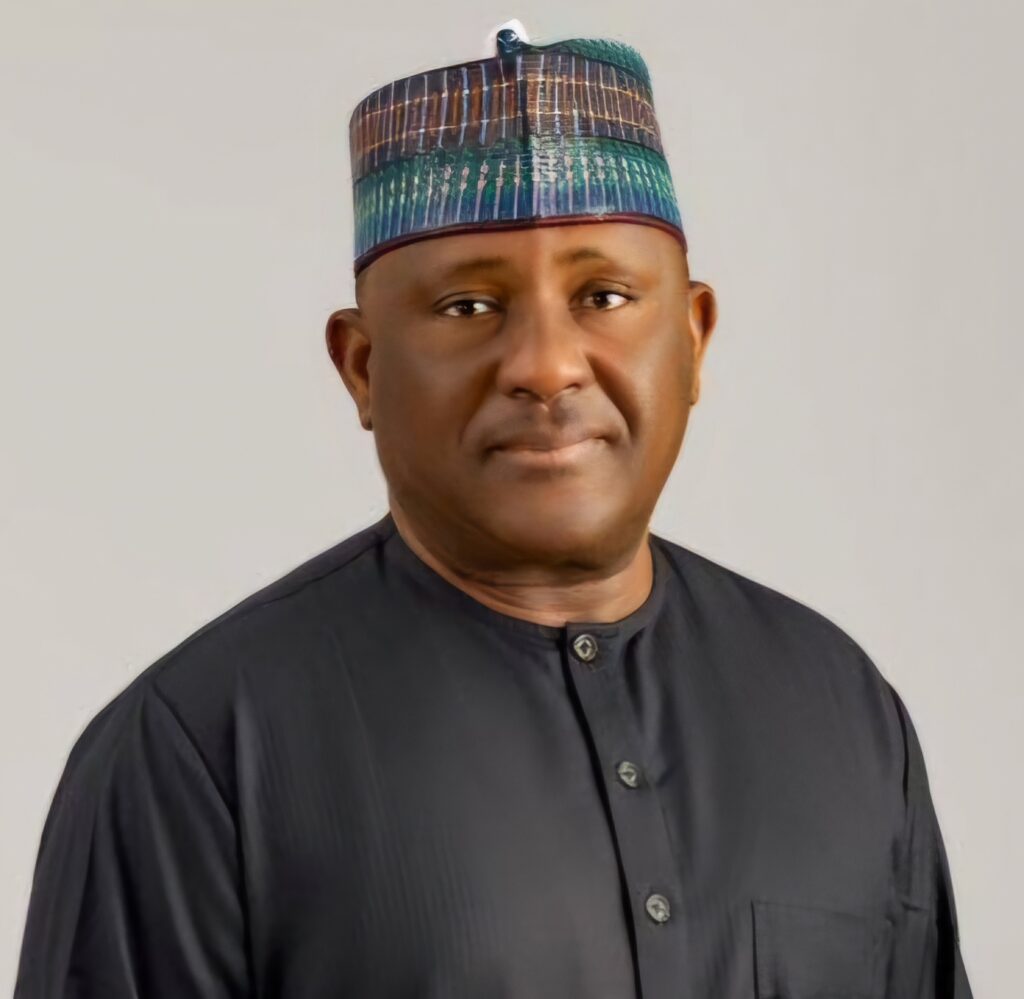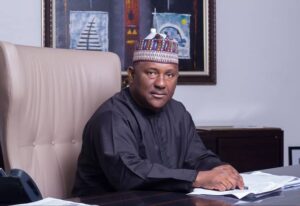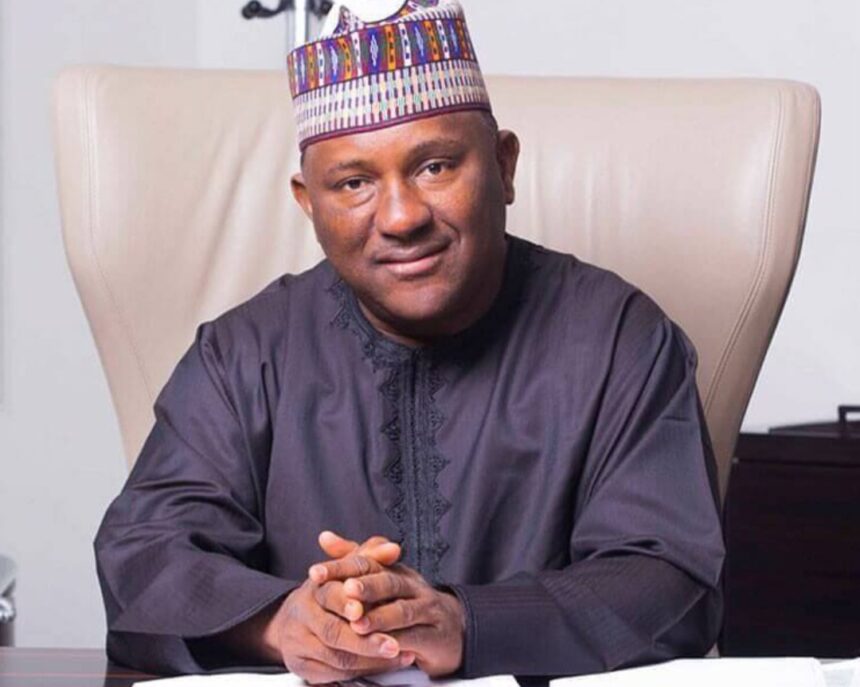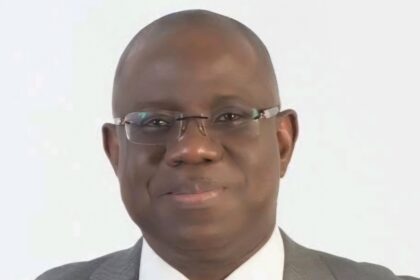● Every Venture a Vision, Every Profit a Promise
● In the Market of Compassion, BUA Boss Trades in Hope
● Philanthropy as Poetry, Industry as Art
Abdulsamad Rabiu is peerless in his strengths. Unlike the prototypical magnate who is praised solely for the numbers he churns, Rabiu is a different breed of mogul—a conjurer of prosperity who, like an alchemist, transforms lives, not just balance sheets.
Rabiu does not merely build industries; he builds dreams. He does not just manufacture cement; he fortifies hope. His hands stretch far beyond the cold logic of commerce, offering a warm embrace to a nation in need of direction. He is the North Star of industry, a guiding light that radiates compassion, innovation, and boundless generosity. …CONTINUE READING


To crown Abdulsamad Rabiu as The Capital’s Industrialist of the Year is not just to recognize a man, but to celebrate a philosophy—one where wealth is a tool, not a trophy. Where success is measured not in profits, but in the lives uplifted, the communities rebuilt, and the futures secured.
Where some play the mournful dirge of scarcity and indifference, Rabiu conducts a philharmonic of bounties. His gestures are not mere acts of charity, but movements in a grand ballet of compassion. His philanthropy pirouettes across the hearts of the underserved, a choreography of hope that inspires and endures.
He understands that generosity is not the refuge of the weak but the armour of the brave. In an age where the Nigerian spirit is battered by economic tsunamis—soaring inflation, relentless currency devaluation, and the erosion of the middle class—Rabiu’s response is not lamentation, but action. While many point fingers at problems, he extends a hand toward solutions.
Like the fabled rainmaker, his giving falls on the parched soils of despair, sprouting green shoots of opportunity and dignity. His foundation—the Abdul Samad Rabiu Initiative Africa (ASR Africa)—is not a static monument to wealth, but a dynamic force of transformation. Schools, hospitals, widows, and budding entrepreneurs all drink deeply from the wellspring of his generosity.
To build is to believe in the future. And Rabiu believes fiercely. His decision to lower the price of cement to N3,500 per bag was more than a business strategy; it was a love letter to the dreamers and the doers of Nigeria. In a country where the aspiration to own a home can feel like chasing shadows, Rabiu’s move was a torch that illuminated a path forward.
Though his noble initiative was frustrated by dealers who sought personal gain over collective progress, the intent remains etched in the hearts of millions. He tried to make cement—the very bedrock of shelter—affordable for the common man. That act alone elevates him above his peers, for it shows a magnate who sees business through the lens of humanity.
Even when the tides of devaluation and fuel subsidy removal threatened to wash away his plans, Rabiu’s commitment to affordability remained steadfast. The true weight of his character lies not in his successes, but in his willingness to fight for others’ dreams.
Rabiu’s vision of empowerment is not monochromatic; it is a vibrant mosaic. Through his partnership with the International Women’s Society, he has lifted over 200 widows out of despair, gifting them not just tools of trade—grinding machines, sewing machines, hairdryers—but tools of dignity and self-sufficiency. His N10 million donation was a clarion call to society, a reminder that the forgotten deserve not just pity, but pathways to prosperity.
At the heart of his vision is the belief that empowering women is not just a moral duty, but an economic imperative. His support of the IFC’s SheWinsAfrica program is a $1.5 million beacon of hope, a lighthouse guiding women entrepreneurs through the stormy seas of exclusion. It is more than money; it is belief made tangible, hope made real.
For the young girls of Northern Nigeria, Rabiu is a bridge to the future. His tech-based mentorship program opens doors that society often closes. In a world where STEM fields can seem like forbidden territories for women, Rabiu’s initiative hands these girls not just keys, but crowns—a chance to lead, innovate, and inspire.
Rabiu’s investments are not just ventures; they are vows to the communities he serves. He understands that true industrialization is not a cold machine, but a living, breathing ecosystem of people, dreams, and destinies.
His hands-on approach to business—his omnipresence in the minutiae of operations—is a testament to his dedication. He is not a distant figurehead, but a relentless worker, a craftsman of prosperity. This tireless spirit resonates with Nigeria’s youth, who see in him a mentor, a model of what it means to build with integrity.
Rabiu’s life is a canvas where industry and philanthropy intertwine. His generosity flows like verses of poetry—each act a stanza, each donation a lifeline. Where others see industry as a science of profit, he sees it as a formula to make an impact. His philanthropic blueprint is holistic—touching health, education, housing, and entrepreneurship. He weaves a tapestry where no thread is left loose, where every gesture strengthens the social fabric. In Rabiu’s world, to give is not an obligation; it is an expression of the highest self.
To name Abdulsamad Rabiu The Capital’s Industrialist of the Year is not an act of flattery but of fidelity to truth. He towers above his peers not just for the empires he builds, but for the empires he helps others build. His compassion is peerless, his commitment unwavering, his impact indelible.
In him, Nigeria finds not just a businessman, but a builder of dreams. Not just an industrialist, but an idealist. His legacy is not one that will be measured merely in factories, but in futures. In the homes of the poor, in the laughter of empowered widows, in the triumph of young girls conquering the world of tech—there lies the true measure of Abdulsamad Rabiu.
While the footprints of his peers are washed away by the tides of self-interest, his prints are etched in granite. Solid. Unshakeable. Eternal.



